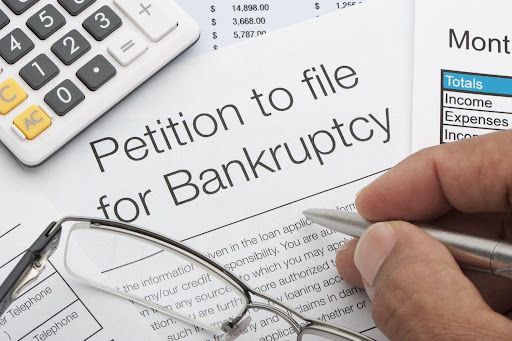What is Compulsory Liquidation and How To Stop It

Compulsory liquidation is an official process that forces a company into being wound up with the support of the court. Compulsory liquidation is most commonly invoked by creditor frustration due to unpaid debts. If the company is insolvent, the court will almost always support a compulsory liquidation.
From a creditor’s standpoint, compulsory liquidation is expensive and may not be the best course of action for recovering an unpaid debt. There are other alternatives if the Statutory Demand does not result in payment. For instance, the creditor may decide to pursue a County Court Claim for a County Court Judgement (CCJ) rather than petitioning.
If the creditor gets a CCJ they can use various court backed collection methods like bailiffs, charging orders and 3rd party debt orders to recover payment or security directly from or against the debtor’s assets.
Any company that receives a winding up order or is threatened with compulsory liquidation should take prompt legal advice about their options.
What is compulsory liquidation?
Compulsory liquidation, also called winding up, is a formal insolvency procedure involving the court following which an order is issued to liquidate a company. The procedure is set out in the Insolvency Act 1986.
Liquidation can be compulsory or voluntary. In a compulsory liquidation, the assets of the company are forcibly realised. This means any assets are sold and distributed to the creditors to pay off debts. A compulsory liquidation may include creditors who were not involved in setting in motion the legal process to recover monies owed.
Technically, the minimum debt owed required to commence the winding up process is £10,000. But in reality, most creditors would not seek compulsory liquidation for a sum that small. The costs may outweigh the recovery of the debt.
How much does compulsory liquidation cost?
Compulsory liquidation is expensive. The current court fee attached to a winding up petition is £280. A creditor will also need to pay a deposit to the Official Receiver of £1,600 to cover immediate expenses and costs.
A copy of the winding up petition must be personally served on the company at its registered office. This process can incur server fees that may have already been sustained with the issue of a statutory demand — often the first step taken to reclaim money.
The winding up petition must be advertised in The Gazette, which incurs a further fee.
Creditors who take legal advice and instruct a solicitor to act for them can incur hundreds or thousands of pounds worth of professional fees.Creditors who do not invest in legal advice to wind up a debtor may be making a false economy as they may be ordered to pay substantial costs to the debtor if they get it wrong.
The costs involved mean that compulsory liquidation is usually only considered if debts are substantial.
How does a company go into compulsory liquidation?
Compulsory liquidation usually starts with a creditor or creditors issuing a Statutory Demand or a County Court Judgement (CCJ) for money owed. The debt must be certain and must be undisputed.
If the request goes unanswered or the debt is not cleared, then the creditor can submit a winding up petition to the court. This process is termed filing or presenting a petition to wind up the company.
A judge in court will decide at a hearing whether it is appropriate to issue a winding up order. The company will have the opportunity to oppose the petition at the hearing. As a general rule, if the company is insolvent and cannot pay its debts, this almost always results in a winding up order.
Can compulsory liquidation be stopped?
There are certain circumstances in which a company can stop compulsory liquidation, but prompt action is essential. Compulsory liquidation can only be halted with the agreement of the other creditors and the order of the court.
The winding up petition will be advertised in The Gazette as early as seven days after the petition is made. Banks and other financial institutions are likely to close down accounts once they see a pending petition published.
Frozen bank accounts often lead to a struggling company not having access to operational funds — leaving the company no option but to accept the winding up petition.
How to stop compulsory liquidation
One of the simplest ways to stop compulsory liquidation is to pay the petitioning creditor in full. However, other scenarios can also prevent compulsory liquidation.
Disputing the compulsory liquidation
The company can dispute the debt of the petitioning creditor by making an application for injunctive relief. An injunction suspends the winding up process whilst the court considers the validity of the debt.
The company must demonstrate proper ground for seeking injunctive relief and submit evidence to contest the debt. Otherwise it can be considered an abuse of the court process. Equally, using a winding up petition as a debt recovery tool instead of the court will also be considered an abuse of process if it becomes clear the debt is genuinely disputed.
Agreeing terms with the petitioning creditor
The company can agree to repayment terms with the petitioning creditor. A repayment plan can halt the process of winding up, providing no other creditors come forward.
Company Voluntary Arrangement (CVA)
The parties can opt for a CVA — a legally binding arrangement between the company and its creditors. CVAs can allow a company time to trade its way back to a better financial position.
A licensed Insolvency Practitioner can negotiate with creditors. If 75% or more of the creditors — measured by the value of their debt — agree to the proposed repayment terms, this can prevent compulsory liquidation. Company directors can take back control of the company once the arrangement is in place.
Time to pay
A company can ask the court for additional time to pay but must demonstrate that the proposal is realistic and that payment can be made quickly. Typically, the court will only agree to grant additional time to pay if payment is made within weeks rather than months.
What is the role of the liquidator?
The liquidator is an officer of the court and has a legal duty to act impartially and fairly. The liquidator’s role is to gather and then realise the company’s assets, following which the proceeds are distributed to the creditors.
After a winding up order has been made, the Official Receiver is initially appointed as the liquidator. The creditors of the company may nominate another individual to act as liquidator.
If another individual is appointed liquidator by the creditors, they must be a registered Insolvency Practitioner. More than one liquidator can be selected to act in a joint capacity.
The liquidator’s powers are far-reaching. A liquidator may carry on the business of the company, bring legal proceedings in the company’s name, and pay off the company’s debts.
The liquidator’s professional fees are included as an expense of the winding up. Such costs are usually paid out of the company’s assets ahead of unsecured creditors but after secured creditors, with fixed charges.
The rules related to how liquidator’s fees may be charged are set out in Sections 18.16 to 18.20 of the Insolvency Rules 2016.
What does compulsory liquidation mean for creditors?
It depends on whether a creditor is secured. Secured creditors take priority. Unsecured creditors come further down the list for payment.
Once secured creditors have been paid, if funds remain for unsecured creditors and the liquidation expenses, they will be disbursed on a ‘pari passu’ basis
In simple terms, this means that creditors and fees are paid on an equitable basis. No one creditor will have priority over another. Sometimes an interim payment or dividend is paid before the liquidation is formally concluded.
Often creditors may only receive the equivalent of a few pence in the pound — sometimes, they receive nothing at all.
Creditors must provide the liquidator with details of their claim, which is called ‘proof of debt’. The legal term for this is ‘proving’.
A liquidator will review all the proofs of debt collectively and can either accept or reject them in whole or in part.
Liquidations can take a long time, and creditors are entitled to reports on the progress of the winding up. Creditors can also form a liquidation committee to assist the liquidator.
What does compulsory liquidation mean for employees?
Employees are usually made redundant following compulsory liquidation. As the business typically ceases trading, there is no further employment. Sometimes redundancies occur before the compulsory liquidation.
Employees are entitled to statutory redundancy payments paid from the company’s realised assets, if any. If the company has no assets, employees can file a claim with the Redundancy Payment Service.
Sometimes, the company owners will set up a new business essentially performing the same function and ask employees to transfer. Employees in this situation should take legal advice regarding their employment rights and the implications of a transfer to a new business.
What does compulsory liquidation mean for company directors?
Once a winding up order is in place, the directors no longer control the company.
Directors have a duty to cooperate with the liquidator in gathering information to fully grasp the company’s financial situation and realise any assets.
Suppose the liquidator believes that the conduct of the directors is such that they have knowingly benefited from the company’s situation whilst disadvantaging their creditors. In that case, the directors could be liable for claims against them for breach of their duties.
In some cases, directors may be required to repay directors’ loans or reimburse money taken from the company in the form of dividends. Directors may also need to return to the company assets of value which can be sold to repay creditor debts.
Conclusion
If your company is struggling to pay a creditor, it is crucial to take legal advice to protect the business from the prospect of compulsory liquidation. If your business has received a winding up petition, prompt action is essential if you want to stop a winding up order being served.If you are considering winding up a debtor company great care should be taken in making sure you get the process right.
The specialist commercial team at Helix Law can advise companies struggling financially and use strategic and targeted advice to help protect against the prospect of compulsory liquidation.



